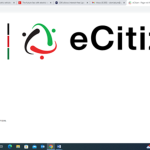Financial institutions will soon be granted access to a State database on secret owners of companies to enable them to swiftly flag and report suspicious transactions involving people using proxies, friends and relatives to evade the anti- money laundering law.
This is part of the amendments to the anti-money laundering law now headed to Parliament, which seeks to remove the blindfold that has undermined the efforts by banks to flag suspicious transactions.
A source at the Office of the Director of Public Prosecutions told the Business Daily that the amendment will be a game changer in the country’s fight against money laundering.
“Access by banks to the electronic registry will be important in tracking the money deposited by ‘smurfs’ on behalf of a beneficial owner,” the source said.
A smurf is an informal term for money launderers who evade scrutiny from the authorities by breaking up large transactions into a set of smaller transactions that are each below the reporting threshold, in this case, $10,000 (Sh1.4 million). The amendment to the same law will increase this to $15,000 (Sh2.1 million).
Banks have been quietly lobbying to be granted direct access to the beneficial ownership database.
The plan has also been revealed by the International Monetary Fund (IMF), in its latest report on Kenya.
The IMF notes that the legal changes will allow financial institutions access to the electronic registry of persons who have beneficial owners of companies domiciled at the Office of the Attorney-General.
The State hopes that with access to the records of persons with ultimate control of the company, technically known as beneficial owners, banks will have better tools to flag suspicious transactions linked to secret business owners who are politically exposed (public servants) or criminals.
This is part of a wider plan to strengthen the lenders’ Know-Your-Customer (KYC) rules as the government intensifies the fight against money laundering and terrorism financing.
The Business Registration Services (BRS), which falls under the State Law Office, in 2020 launched an online portal on beneficial ownership registers, which shows the ultimate significant owners of both private and public companies.
Under the Proceeds of Crime and Anti-Money Laundering (Amendment) Act, 2022, banks are supposed to establish the ultimate beneficial owners of companies or those with substantial control of the business.

Details required for filing in the beneficial ownership registry include names of the substantial shareholder, KRA PIN, national ID or passport copies, postal address, residential address, occupation, telephone number and the date when the investor became a beneficial owner.
A substantial owner is one with a controlling stake of more than 10 percent in the case of publicly listed companies.
But bank executives who spoke to the Business Daily said currently the electronic register on beneficial ownership (BO) information is only available to the law enforcement agencies such as the KRA, the Ethics and Anti-Corruption Commission (EACC), the Assets Recovery Agency (ARA), security agencies and the Financial Reporting Centre (FRC).
The FRC tracks illicit cash transactions. As part of the country’s anti-money laundering and countering the financing of terrorism (AML/CFT) framework, banks are required to regularly file suspicious cash transaction reports on amounts exceeding Sh1.4 million ($10,000) and above to the FRC.
“Further legal amendments are underway to also grant access to the e-register by financial institutions for AML/CFT purposes which says that legal amendments are underway to give banks access to electronic registers of beneficial owners of public and private companies,” says the IMF in its report.
Bernard Kiragu, managing partner at corporate governance consultancy firm Scribe Services, said these legal amendments offer an “extra layer of KYC for banks.”
“It is important because of KYC, a way of lifting the corporate veil of corporations. It is good when checking on political risk,” said Mr Kiragu.
Mohamed Wehliye, a senior adviser at Saudi Arabian Monetary Authority, said granting banks access to this registry has the effect of “lifting the veil on nominee shareholding to get know the extent to which public servants or politicians and their families/cronies milk public funds.”
Most of the companies, including publicly listed ones, have not been disclosing these details. And they have not been penalized for non-compliance, according to a mutual evaluation report on Kenya’s anti-money laundering and counter-terrorist financing measures.
“BRS has not sanctioned any company for compliance, but used denial of service as an administrative measure to enforce compliance,” said The Eastern and Southern Africa Anti-Money Laundering Group (ESAAMLG), a regional anti-money laundering body.
Fresh data from the BRS shows only 40 percent of private firms or 276,014 companies are compliant with the requirement to keep a list of beneficial owners out of 690,222 registered private companies.



